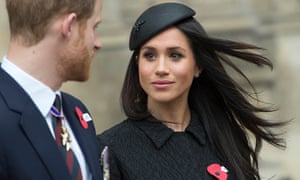The making of Meghan MarklePosted in Articles, Biography, Media Archive, United States on 2018-05-16 15:26Z by Steven |
The Washington Post
2018-05-16
Jessica Contrera, Features Writer
 Portraits of Meghan Markle from eighth, ninth and 12th grades. From her childhood in Los Angeles to her acting career, Markle has said her “ethnically ambiguous” appearance shaped her identity. (John Dlugolecki/Contact Press Images) |
What happens when a ‘confident mixed-race woman’ marries into the royal family
Meghan Markle was glaring at her love interest. She leaned forward, fury clear in her expression as she asked the question: Was it so hard to believe one of her parents was black?
“You think,” she spat, “this is just a year-round tan?”
He stammered. She grimaced. The opening credits began to roll.
It was just the scene of a television show, a few lines from the script of the law drama “Suits.” But Markle would later describe it as something more: the moment she was no longer playing the role of “ethnically ambiguous.” That was the description assigned to so many of the jobs for which she had auditioned. Others asked her to be white, like her father. Or black, like her mother…
Read the entire article here.
/cdn.vox-cdn.com/uploads/chorus_image/image/59725481/lead_art_megan_markle.0.jpg)




